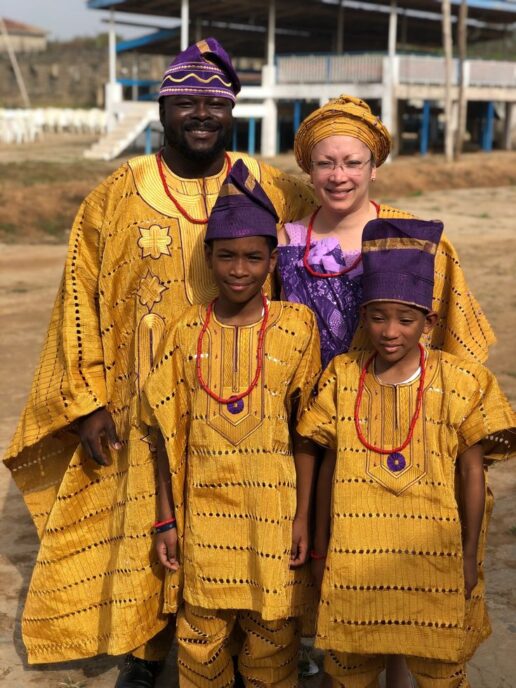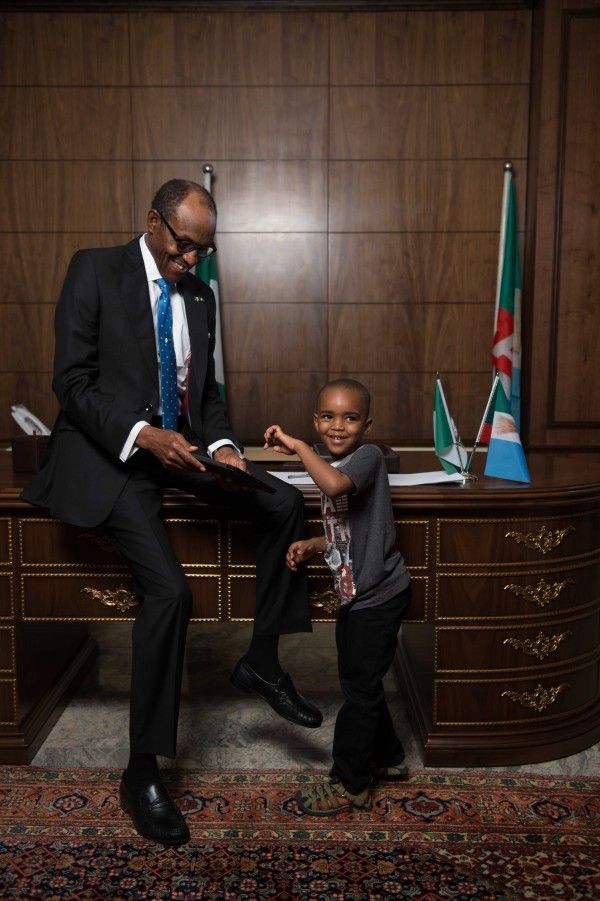Call us @+234 806 558 2598
Kemi Badenoch’s Citizenship Claims: 2025 Uproar
Kemi Badenoch’s Interview and Controversial Remarks

The political arena is no stranger to controversy, but when comments about national identity and citizenship rights hit the airwaves, they often ignite particularly fervent debates. Such was the case recently when Kemi Badenoch’s citizenship comment surfaced, the UK Conservative Party leader and a prominent figure in British politics, made striking assertions about the perceived difficulty of acquiring Nigerian citizenship, specifically for her own children due to her gender.
Her remarks, made during an interview with CNN’s Fareed Zakaria, quickly drew a sharp rebuke from Nigeria’s highly respected human rights lawyer, Femi Falana (SAN). Falana wasted no time in dissecting Badenoch’s claims, labelling them a display of “utter ignorance” of Nigeria’s legal provisions. This isn’t just a transatlantic spat; it’s a fascinating look at citizenship laws, gender equality, and the often-misunderstood nuances of international relations.
Badenoch’s initial comments came within a broader discussion about immigration policies, where she critiqued what she described as the UK’s “leniency” compared to other nations. She argued that many immigrants exploit the UK’s system in ways that wouldn’t be tolerated in their home countries. To underscore her point, she offered a personal anecdote: “It’s virtually impossible, for example, to get Nigerian citizenship. I have that citizenship by virtue of my parents, I can’t give it to my children because I’m a woman.” She further stated, “Yet loads of Nigerians come to the UK and stay for a relatively free period of time, acquire British citizenship. We need to stop being naive.”
This statement, particularly the part about her inability to confer Nigerian citizenship due to her gender, immediately raised eyebrows among those familiar with the Nigerian legal framework. Badenoch, born in the UK in 1980 to Yoruba parents, spent a significant part of her early life in Nigeria before returning to Britain at 16. Her unique background might lead some to believe she possesses an intimate understanding of Nigerian societal and legal norms. However, Falana’s swift and detailed rebuttal suggests otherwise, arguing that her remarks demonstrate a fundamental misunderstanding of the very constitution she claims governs her ancestral land.
The Truth About Nigerian Citizenship As In The Constitution
Femi Falana, a Senior Advocate of Nigeria and a tireless champion of human rights, wasted no time in setting the record straight. In a comprehensive rebuttal, he meticulously cited sections of the Nigerian Constitution, providing a clear and unequivocal counter narrative to Badenoch’s assertions. His core argument was straightforward: Kemi Badenoch’s children are unequivocally Nigerian citizens by birth, regardless of their place of birth or their mother’s gender.
Contrary to Kemi Badenoch’s misleading claim, her children are Nigerians because she is a Nigerian, Falana asserted. He specifically referenced Section 25(b) and (c) of the Nigerian Constitution, which he contends directly refutes her claim that a woman cannot confer citizenship on her children. While the full text of these sub-sections isn’t provided in the excerpt, Falana’s interpretation strongly implies that Nigerian law ensures that children born to a Nigerian parent are granted citizenship by descent, regardless of the parent’s gender. This is a crucial point, as many modern constitutions prioritize parental lineage over archaic gender-based restrictions when determining citizenship by birth.
Falana didn’t stop there. He further bolstered his argument by invoking Section 42(2) of the Nigerian Constitution, a powerful provision that guarantees equal rights to all Nigerian citizens, regardless of gender or the circumstances of their birth. This section, he explained, dictates that “No citizen of Nigeria shall be subjected to any disability or deprivation merely by reason of the circumstances of his birth, gender, political opinion or class.”
This clause is a cornerstone of Nigeria’s commitment to equality and non-discrimination, directly challenging any notion that a mother’s gender could impede her ability to pass on citizenship to her offspring. By citing this, Falana underscored that Badenoch’s claim runs contrary to the fundamental principles of equality enshrined within the Nigerian legal framework.
Moreover, Falana pointed out that Badenoch’s two children are in fact dual citizens of Nigeria and the United Kingdom. This is a common and legally recognized status in many countries, including Nigeria. He clarified that the onus would be on the children, upon reaching adulthood, to decide whether to renounce their Nigerian citizenship, as stipulated by Section 29 of the Nigerian Constitution. This further debunks the idea that Nigerian citizenship is elusive or somehow denied to her children.
Virtually Impossible? Debunking Myths About Acquiring Nigerian Citizenship Contrary to Kemi Badenoch’s Citizenship Claim
Beyond the issue of citizenship by birth, Badenoch also claimed that acquiring Nigerian citizenship is “virtually impossible.” This assertion, too, was swiftly refuted by Falana, who highlighted that the Nigerian Constitution contains clear and established pathways for foreigners to obtain citizenship. He specifically referred to Sections 26 and 27 of the Constitution, which outline provisions for citizenship by registration and naturalisation.
Citizenship by registration typically applies to individuals who have a strong connection to Nigeria, often through marriage to a Nigerian citizen, or for children born outside Nigeria whose parents are Nigerian but may not have registered their birth at a Nigerian consulate.6 Citizenship by naturalisation, on the other hand, is generally for foreign nationals who have resided in Nigeria for a specified period, can demonstrate good character, have made significant contributions, or can show an intention to reside permanently in Nigeria. Both processes, while requiring adherence to specific conditions and procedures, are standard in international law and are certainly not “virtually impossible” in Nigeria any more than in other sovereign nations.
Falana’s detailed explanation serves as a vital corrective to what he perceives as a misrepresentation of Nigerian law. His intervention goes beyond a simple clarification; it’s a defence of Nigeria’s legal system and its commitment to established international norms regarding citizenship. Badenoch’s comments, whether intentional or not, painted a picture of a nation with restrictive, even discriminatory, citizenship policies. Falana’s response, grounded in constitutional provisions, aims to dispel these misconceptions and present a more accurate image of Nigeria’s legal landscape.
Beyond the Legal Battle: Implications for Discourse and Diplomacy
The exchange between Kemi Badenoch and Femi Falana is more than just a legal debate; it carries significant implications for public discourse, international perceptions, and even diplomatic relations. When a prominent political figure like Kemi Badenoch, who holds influence within the UK government and seeks to lead the Conservative Party, makes such public statements, they are often taken as authoritative. Her comments, if left unchallenged, could perpetuate inaccurate stereotypes about Nigeria and its legal system.
Falana’s swift and decisive intervention serves as a crucial counter-narrative. It underscores the importance of accurate information, especially when discussing sensitive topics like national identity and citizenship. His response not only corrects the record but also champions the integrity of the Nigerian Constitution and its progressive provisions. It’s a powerful reminder that legal frameworks are complex and require careful study and understanding, rather than relying on anecdotal or misinformed claims.
Furthermore, Badenoch’s broader argument about British immigration leniency and her stated intention to make acquiring British citizenship “a lot harder” if elected Prime Minister, frames her comments within a political agenda. Her use of Nigeria as an example, whether accurate or not, feeds into a particular narrative about immigration challenges and national sovereignty. Falana’s rebuttal effectively challenges the factual basis of at least one of her key illustrative points, potentially weakening the overall force of her argument for tighter immigration controls.
Ultimately, this incident highlights the interconnectedness of global politics and the impact of public statements. It emphasizes the need for informed discourse, especially from those in positions of power. Femi Falana’s robust defence of Nigerian law not only educated the public but also served as a testament to the nation’s commitment to its constitutional principles of equality and legal due process. It’s a compelling reminder that the truth, especially in legal matters, often lies in the details of the written law, not in casual assertions.
In an age where misinformation spreads like wildfire, public figures have a responsibility to speak with facts, especially on sensitive issues like citizenship and immigration. Kemi Badenoch’s comments, whether born out of confusion or deliberate political strategy, were inaccurate and potentially harmful.
Thanks to Femi Falana’s intervention, the Nigerian public and indeed, the global audience now has clarity. Nigerian women can transmit citizenship to their children. Foreigners can acquire Nigerian citizenship. And being Nigerian is not defined by borders but by constitutional rights, heritage, and identity.


